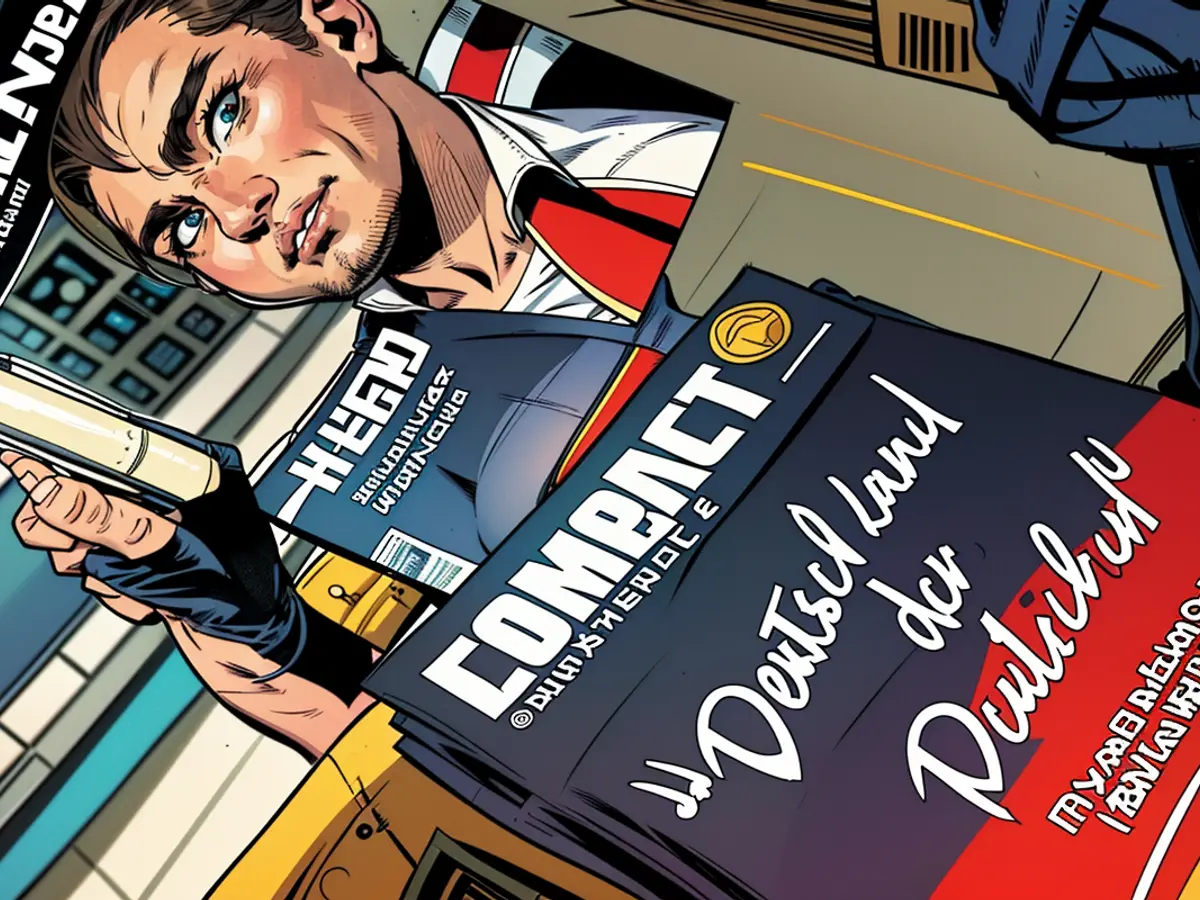Reactions - AfD Sachsen-Anhalt criticizes 'Compact'-ban
The Saxony-Anhalt AfD state parliamentary faction criticizes the ban on the "Compact" magazine, which has been labeled extremist by the Federal Office for the Protection of the Constitution. "They are making thoughtless and unwanted government critics mute," declared parliamentary business manager Tobias Rausch. The AfD politician sees freedom of speech threatened and criticizes the Federal Ministry of the Interior. "An appeal to the reason of the other political responsible parties is necessary to prevent further drifts into totalitarian tendencies."
Federal Interior Minister Nancy Faeser (SPD) has banned the "Compact" magazine and Conspect Film GmbH. Faeser justifies this by stating that "Compact" is a "central mouthpiece of the far-right scene." Law enforcement searched the premises of the organization as well as the homes of leading figures, management, and shareholders in Brandenburg, Hesse, Pirna in Saxony, and Saxony-Anhalt in the morning.
The Left welcomes the ban
The Left welcomes the ban. "For too long, the far-right 'Compact' magazine has acted as a partner of the AfD, spreading aggressive hate speech against democrats and democracy," said the deputy faction leader Monika Hohmann of the dpa. "Today's ban is right, albeit too late. It must continue." Further networks of constitutionally hostile publishers and publishers must be dismantled, according to Hohmann.
The Greens also welcome the ban. This is a heavy blow against the far-right and conspiratorial scene in Germany, said Landtag member Sebastian Striegel of the dpa. "The material found during the searches must be intensively evaluated for indications of control of the magazine also by Russian influence operations. Disinformation, propaganda, and hate must also be countered by the state with all consequences."
- The Saxony-Anhalt AfD strongly disagreed with the Federal Interior Ministry's decision to ban the "Compact" magazine, regarding it as an attack on freedom of speech.
- Nancy Faeser, the Federal Interior Minister from Berlin, defended the ban by labeling "Compact" as a significant platform for the far-right scene in Germany.
- The Federal Office for the Protection of the Constitution in Falkensee had previously classified "Compact" as extremist, sparking controversy within various political parties.
- The SPD, in alignment with Faeser, argued that "Compact" was a toxic force promoting extremist ideologies, and its silence was a necessity for upholding peace and democracy.
- In response to the ban, the extremist party AfD in Saxony declared its intention to challenge the decision in the courts, claiming the ban was an infringement on their right to press freedom.
- Brandenburg-based police forces also participated in the raids on homes and premises related to "Compact" and its associates, aiming to dismantle networks and limit the spread of extremist ideologies in the media.
- Extremism analysts think the ban could possibly strengthen the AfD's hold on its voter base, as they see the decision as an overreach of government power and an assault on their ideologies.








